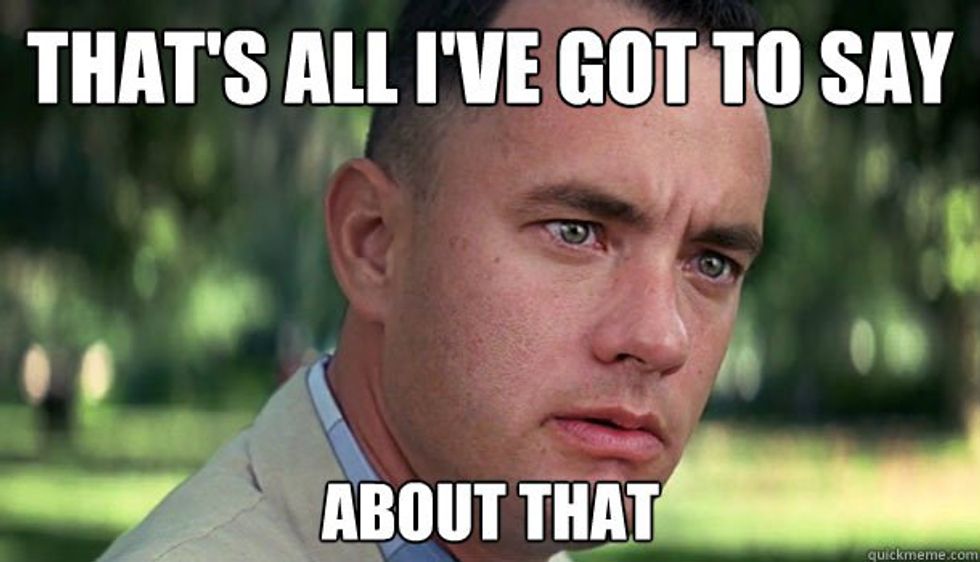Dear Announcers,
First, I would like to start off by saying thank you for choosing to spend your time explaining and giving (most of the time) great insight into sporting competitions before, during and after they are happening. Your fun fact tidbits of how long an athlete has been training for the games, where they deferred their college admission in order to devote all of their time to training for the Olympics, and, most importantly, your personal opinion on the appearance of an athlete while he/she is competing is most beneficial to the viewers at home.
Recently, I'm sure all have noticed the rampant articles and videos being released about the way that female athletes are being portrayed/commented about both in the media as well as during the Olympic commentary (when you google sexist, "sexist olympics" is the first thing to pop up).
Seeing as women make up nearly half of the athletes competing (and the population of the world), it is understood why so many people are upset by this representation of female athletes. Since I do sympathize with you, the announcers, I have decided to help you out by making you a little "cheat sheet" that will help you when commenting on the female athletes while they show off all of their hard work and compete for the gold.
1.Nobody gets to the Olympics on her own but it is still her hard work/determination/skill that allows her to succeed.
Wholly crediting an athlete's success to someone other than that athlete is not only wrong, it is insensitive. Yes, support from husbands, trainers, friends, and countries are vital for an athlete during the training process and many athletes understand this and are very grateful. However, when an announcer says that a husband "is the one responsible" for a big win, it devalues all of the grueling blood, sweat, and tears that a female athlete has poured into her craft. Introducing her as the "wife, fiancé, girlfriend, best friend, next door neighbor, second cousin twice removed of a male" is also frowned upon and should be avoided at all costs.
2.If an athlete wishes to wear/abstain from wearing makeup, it is not your place to give your "preference."
Two male announcers should not have the audacity to comment that they prefer when a female athlete looks "beautiful" (with a face full of makeup) when accepting her gold medals. This is just contributing to how females are being hyper sexualized. That is like if someone decreed that all male athletes should look like they just walked off a Calvin Klein shoot when accepting their medals. I mean that's the least they can do right? We like looking at man candy when they are making their dreams come true. Moral of the story: if a female wishes to wear/ not wear makeup while competing for whatever reason, the world will keep spinning and it should be left at that.
3.Comparing women to men is not a compliment, however nice your intentions may be
Repeat after me: anything a man can do, a woman can do. Granted our body compositions are different and women do not naturally have the same amount of testosterone in our bodies, but women are still able to kick some serious Olympic butt on their own without being compared to the opposite sex. Believe it or not, this can be quite insulting as female athletes do not train with the mindset of being more like a male. Female athletes Run, Flip, Swim, Play, and Win Olympic Medals Like a Girl (because they are) and that should never be an insult.
4. Having a child does not suddenly make you unable to compete
Enough said.

With Love,
All of the female (and male) viewers of the 2016 Olympic Game who are tired of listening to gender stereotyping and sexist comments
P.S. This article is not meant to individually call out announcers (even if they contribute to the sexist society we live in), merely point out flaws in the system. My mind cannot physically imagine how difficult of a task it is to be an announcer at any sporting game, let alone the Olympic games where roughly 3-4 billion people are watching at a particular time. I know the majority of announcers have donated their life to sports (and are even ex athletes) and I thank you for helping clarify a great deal of what is happening during events that people without extensive knowledge of the sport would not pick up on.












 The minimum wage is not a living wage.
StableDiffusion
The minimum wage is not a living wage.
StableDiffusion
 influential nations
StableDiffusion
influential nations
StableDiffusion












